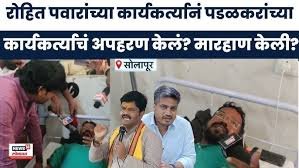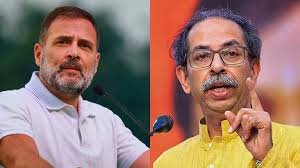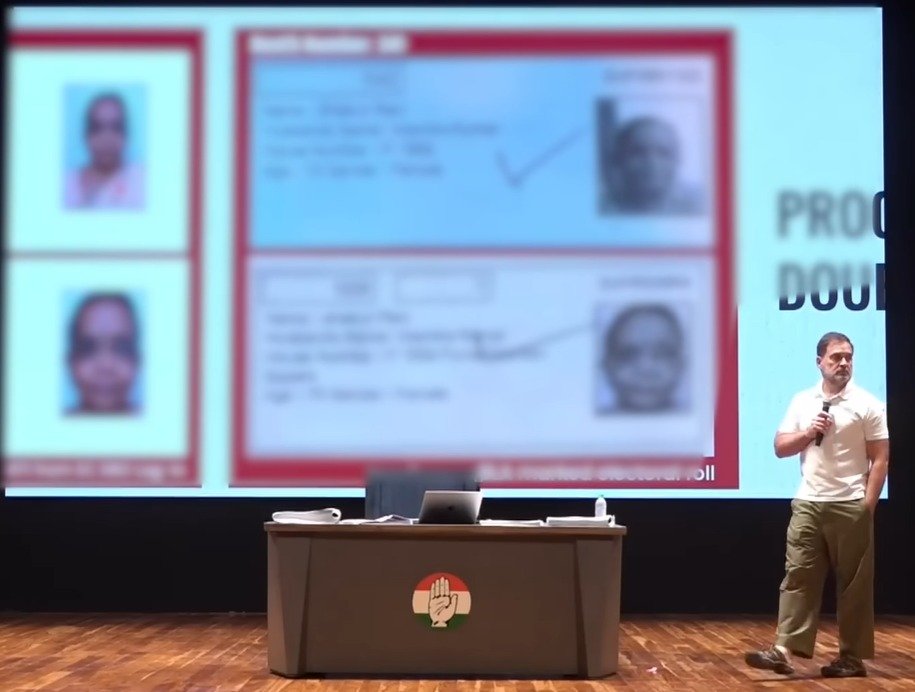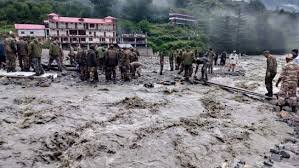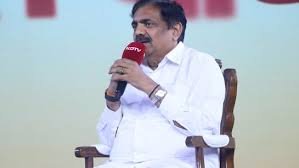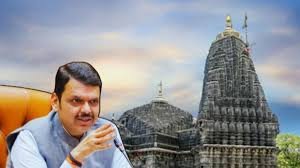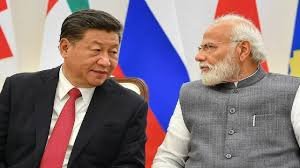
The atmosphere will be tight in the 3rd meeting! What is India doing to counter Trump's pressure? Read the full plan
Trump Tariffs: If we want to speed up chemical processes without changing the final result, some other chemical substances are added. Those substances are called hormones in Marathi and catalysts in English. Since Donald Trump became the President of the United States, he has started a new chemical process of global foreign relations. And now, after six months, its results have started to be seen.. Many foreign compounds are formed from this process
What will happen because of one Trump?
Prime Minister Narendra Modi is going to visit China after five years. Relations between these two neighboring countries in Asia had been strained in the last few years. Against that background, Modi's visit to China is of great importance. Especially, the timing achieved by India to announce this visit is important. International analysts are directly linking it to the Trump tariffs.
Another important thing is that the closeness of Russia, due to which Trump is upset with India, was visited by National Security Advisor Ajit Doval. Doval met Russian President Vladimir Putin during this visit. Doval has announced that Putin will visit India by the end of this year.
At the same time, the President of Brazil, a large South American country and an important member of BRICS, has spoken to Prime Minister Modi over the phone.
While building a front on the international front, Prime Minister Modi has also taken a firm stand at the domestic level. The Prime Minister has announced that even if I suffer personal losses, I will not allow Indian farmers to suffer losses.
Nation First for PM Modi
The US President has ordered a fifty percent import tax on India to extract oil from Vada. Prime Minister Narendra Modi responded directly to him on Thursday. The Indian head of government has told the US that no matter how much pressure others put on, the interests of the country's people are the most important. But in foreign policy, signals are more important than speaking clearly and revealing all the cards. India has also adopted a strategy of responding only with signals to the burden of 50 percent taxes imposed by the United States.
The countries on which US President Donald Trump has tried to impose additional tariffs have resisted his pressure. The US imposed a 250 percent tax on China. China stopped the supply of rare earth minerals essential to American industries. In addition, it imposed a 140 percent tax on American goods. The US bowed down.
The US decided to impose a 50 percent tax on Brazilian goods, on which Brazilian President Lula decided not to speak to US President Donald Trump anymore, but to speak to Modi, Jinping and Putin on the phone.
The US decided to impose a 50 percent tax on India. The reason for this was India's import of crude oil from Russia. In its response, India clarified that oil purchases will not stop.
Brazilian President Lula da Silva spoke to Prime Minister Narendra Modi. In this conversation, both leaders expressed their determination to strengthen their relations rather than tolerate America's tantrums. Modi had visited Brazil for two days on the occasion of the BRICS summit in July. The US President's tariff policy has started to strengthen relations with India, a large democratic country in South America.
Strong message to America
On Wednesday, US President Donald Trump's special envoy Steve Whittock met Russian President Vladimir Putin in Moscow. On the same day, India's National Security Advisor Ajit Doval also landed in Moscow. Doval and Putin met on Thursday. Doval said after the meeting that Putin agreed to visit India this month.
While the meeting between Doval and Putin was going on in Moscow, information was made public in Delhi that Prime Minister Narendra Modi would be visiting China. Modi and Chinese President Xi Jinping will meet on the 31st. Prime Minister Modi will be visiting China after five years. Jinping and Modi met in October 2024. Since then, relations between the two countries have started to get back on track.
Trump Tariffs: If we want to speed up chemical processes without changing the final result, some other chemical substances are added. Those substances are called hormones in Marathi and catalysts in English. Since Donald Trump became the President of the United States, he has started a new chemical process of global foreign relations. And now, after six months, its results have started to be seen.. Many foreign compounds are formed from this process
What will happen because of one Trump?
Prime Minister Narendra Modi is going to visit China after five years. Relations between these two neighboring countries in Asia had been strained in the last few years. Against that background, Modi's visit to China is of great importance. Especially, the timing achieved by India to announce this visit is important. International analysts are directly linking it to the Trump tariffs.
Another important thing is that the closeness of Russia, due to which Trump is upset with India, was visited by National Security Advisor Ajit Doval. Doval met Russian President Vladimir Putin during this visit. Doval has announced that Putin will visit India by the end of this year.
At the same time, the President of Brazil, a large South American country and an important member of BRICS, has spoken to Prime Minister Modi over the phone.
While building a front on the international front, Prime Minister Modi has also taken a firm stand at the domestic level. The Prime Minister has announced that even if I suffer personal losses, I will not allow Indian farmers to suffer losses.
Nation First for PM Modi
The US President has ordered a fifty percent import tax on India to extract oil from Vada. Prime Minister Narendra Modi responded directly to him on Thursday. The Indian head of government has told the US that no matter how much pressure others put on, the interests of the country's people are the most important. But in foreign policy, signals are more important than speaking clearly and revealing all the cards. India has also adopted a strategy of responding only with signals to the burden of 50 percent taxes imposed by the United States.
The countries on which US President Donald Trump has tried to impose additional tariffs have resisted his pressure. The US imposed a 250 percent tax on China. China stopped the supply of rare earth minerals essential to American industries. In addition, it imposed a 140 percent tax on American goods. The US bowed down.
The US decided to impose a 50 percent tax on Brazilian goods, on which Brazilian President Lula decided not to speak to US President Donald Trump anymore, but to speak to Modi, Jinping and Putin on the phone.
The US decided to impose a 50 percent tax on India. The reason for this was India's import of crude oil from Russia. In its response, India clarified that oil purchases will not stop.
Brazilian President Lula da Silva spoke to Prime Minister Narendra Modi. In this conversation, both leaders expressed their determination to strengthen their relations rather than tolerate America's tantrums. Modi had visited Brazil for two days on the occasion of the BRICS summit in July. The US President's tariff policy has started to strengthen relations with India, a large democratic country in South America.
Strong message to America
On Wednesday, US President Donald Trump's special envoy Steve Whittock met Russian President Vladimir Putin in Moscow. On the same day, India's National Security Advisor Ajit Doval also landed in Moscow. Doval and Putin met on Thursday. Doval said after the meeting that Putin agreed to visit India this month.
While the meeting between Doval and Putin was going on in Moscow, information was made public in Delhi that Prime Minister Narendra Modi would be visiting China. Modi and Chinese President Xi Jinping will meet on the 31st. Prime Minister Modi will be visiting China after five years. Jinping and Modi met in October 2024. Since then, relations between the two countries have started to get back on track.
What will happen because of one Trump?
Prime Minister Narendra Modi is going to visit China after five years. Relations between these two neighboring countries in Asia had been strained in the last few years. Against that background, Modi's visit to China is of great importance. Especially, the timing achieved by India to announce this visit is important. International analysts are directly linking it to the Trump tariffs.
Another important thing is that the closeness of Russia, due to which Trump is upset with India, was visited by National Security Advisor Ajit Doval. Doval met Russian President Vladimir Putin during this visit. Doval has announced that Putin will visit India by the end of this year.
At the same time, the President of Brazil, a large South American country and an important member of BRICS, has spoken to Prime Minister Modi over the phone.
While building a front on the international front, Prime Minister Modi has also taken a firm stand at the domestic level. The Prime Minister has announced that even if I suffer personal losses, I will not allow Indian farmers to suffer losses.
Nation First for PM Modi
The US President has ordered a fifty percent import tax on India to extract oil from Vada. Prime Minister Narendra Modi responded directly to him on Thursday. The Indian head of government has told the US that no matter how much pressure others put on, the interests of the country's people are the most important. But in foreign policy, signals are more important than speaking clearly and revealing all the cards. India has also adopted a strategy of responding only with signals to the burden of 50 percent taxes imposed by the United States.
The countries on which US President Donald Trump has tried to impose additional tariffs have resisted his pressure. The US imposed a 250 percent tax on China. China stopped the supply of rare earth minerals essential to American industries. In addition, it imposed a 140 percent tax on American goods. The US bowed down.
The US decided to impose a 50 percent tax on Brazilian goods, on which Brazilian President Lula decided not to speak to US President Donald Trump anymore, but to speak to Modi, Jinping and Putin on the phone.
The US decided to impose a 50 percent tax on India. The reason for this was India's import of crude oil from Russia. In its response, India clarified that oil purchases will not stop.
Brazilian President Lula da Silva spoke to Prime Minister Narendra Modi. In this conversation, both leaders expressed their determination to strengthen their relations rather than tolerate America's tantrums. Modi had visited Brazil for two days on the occasion of the BRICS summit in July. The US President's tariff policy has started to strengthen relations with India, a large democratic country in South America.
Strong message to America
On Wednesday, US President Donald Trump's special envoy Steve Whittock met Russian President Vladimir Putin in Moscow. On the same day, India's National Security Advisor Ajit Doval also landed in Moscow. Doval and Putin met on Thursday. Doval said after the meeting that Putin agreed to visit India this month.
While the meeting between Doval and Putin was going on in Moscow, information was made public in Delhi that Prime Minister Narendra Modi would be visiting China. Modi and Chinese President Xi Jinping will meet on the 31st. Prime Minister Modi will be visiting China after five years. Jinping and Modi met in October 2024. Since then, relations between the two countries have started to get back on track.

.jpg)






